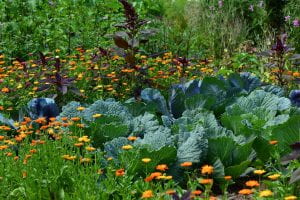by Steve Reiners, Professor in Horticulture, Cornell University, Cornell AgriTech
 Canadian wildfires are impacting air quality here in the Northeast. Smoke has filled the sky and warnings are issued for outdoor activities. This is making many growers and gardeners worried about the potential impact the smoke will have on field grown vegetables. The good news is the impact will be minimal at worst.
Canadian wildfires are impacting air quality here in the Northeast. Smoke has filled the sky and warnings are issued for outdoor activities. This is making many growers and gardeners worried about the potential impact the smoke will have on field grown vegetables. The good news is the impact will be minimal at worst.
Smoke filled skies decrease sunlight and reduce photosynthesis but to a small degree and temporarily. Despite the shade, there is still enough diffused light penetrating the smoke to maintain growth. Smoke typically does not block the pores in the leaf (stomata) where photosynthesis happens. The most important thing you can do is maintain good soil moisture by optimizing irrigation. This will keep the pores open and clean. The droughty conditions this spring are likely to cause more of a problem than the smoke.
Concerns that leafy greens and other commodities will pick up a smokey flavor are unwarranted. Recent research done in California after wildfires there showed leafy greens had no issues with flavor or possible volatile chemicals on or within the leaves. The smoke we’re seeing does not contain dangerous chemicals.
The smoke we are experiencing is nearly 100% from the burning forests, not plastics, buildings or chemicals as seen in recent train derailments. The rain that falls through this smoky layer is also not dangerous to plants, people or animals. Unlike acid rain that forms from the burning of high sulfur fuels, the rain will be near neutral pH or just slightly acid.
Pollinators will likely stay close to their hives when it’s smoky. It’s a little early in the season for pollination of squash and other fruiting crops, so this should not be a problem. Even if the crop has flowers, bees will become active again as soon as the smoke clears.
Mask up when you’re outside tending to your plants as the smoke is a danger to you and me. But the vegetables should be fine. Keep them well watered, and you should be enjoying a normal harvest later this summer.
